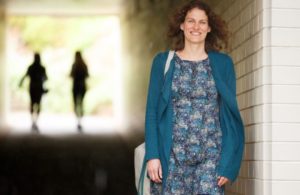
In high-income countries with expensive and tight housing markets affecting many people, resettlement for people from refugee and asylum-seeker backgrounds is becoming increasingly difficult.

To delve deeper, Flinders University researchers have tracked the relationship between housing, neighbourhood, and health and wellbeing of 25 people from refugee and asylum-seeking backgrounds in South Australia over three years - finding that housing environments play a major role in physical and mental health outcomes.
The stresses of settling into a new country can be exacerbated by overcrowded, poor quality, costly or unstable housing, says Flinders University Professor Anna Ziersch, first author of the new article in BMC Public Health.
In the study, participants shared how difficult housing circumstances contributed to poor health. This included respiratory health being affected by mould and damp, sleep disturbances caused by noise and a lack of privacy in overcrowded housing, and stress and anxiety from insecurity about housing tenure, lack of safety, and disconnection from neighbourhood supports.
Professor Ziersch highlights that the research was conducted around COVID-19, saying: "Our community interviews were conducted before and during the pandemic, prior to the latest housing and rental price rises, so the experiences of study participants really highlight the way that housing barriers might impede an ideal resettlement pathway."
With more than 130 million people displaced worldwide – up from 108m people in 2022 – finding ways to support positive resettlement is more important than ever.
"Rebuilding a sense of home is crucial for those experiencing forced relocation - and the health consequences of not being able to do this are clear. However, we found that when housing circumstances improved over time then health and wellbeing also improved," she says.
Host communities play a crucial role in facilitating positive housing and health outcomes and overall integration for people from refugee and asylum-seeking backgrounds.
Particularly while Australia's supply of affordable housing options remains weak, the study's authors Professor Ziersch, Dr Moira Walsh and Associate Professor Clemence Due are calling for more comprehensive strategies to support refugees and asylum-seekers, including longer periods of supported housing, greater assistance to access private rental housing, and initiatives to build connections between new arrivals and their neighbours.
The authors argue that for people fleeing persecution and violence, finding a sense of home and security in their new country is vital for wellbeing and in building a new life, with benefits for refugees and asylum-seekers as well as host communities.
The article, 'Housing and health for people from refugee and asylum-seeking backgrounds: findings from an Australian qualitative longitudinal study' (2024), by Anna Ziersch, Moira Walsh and Clemence Due has been published in the BMC Public Health. DOI: 10.1186/s12889-024-18616-5
Acknowledgements: The study was conducted on Kaurna land and was partly funded by the Australian Research Council.






